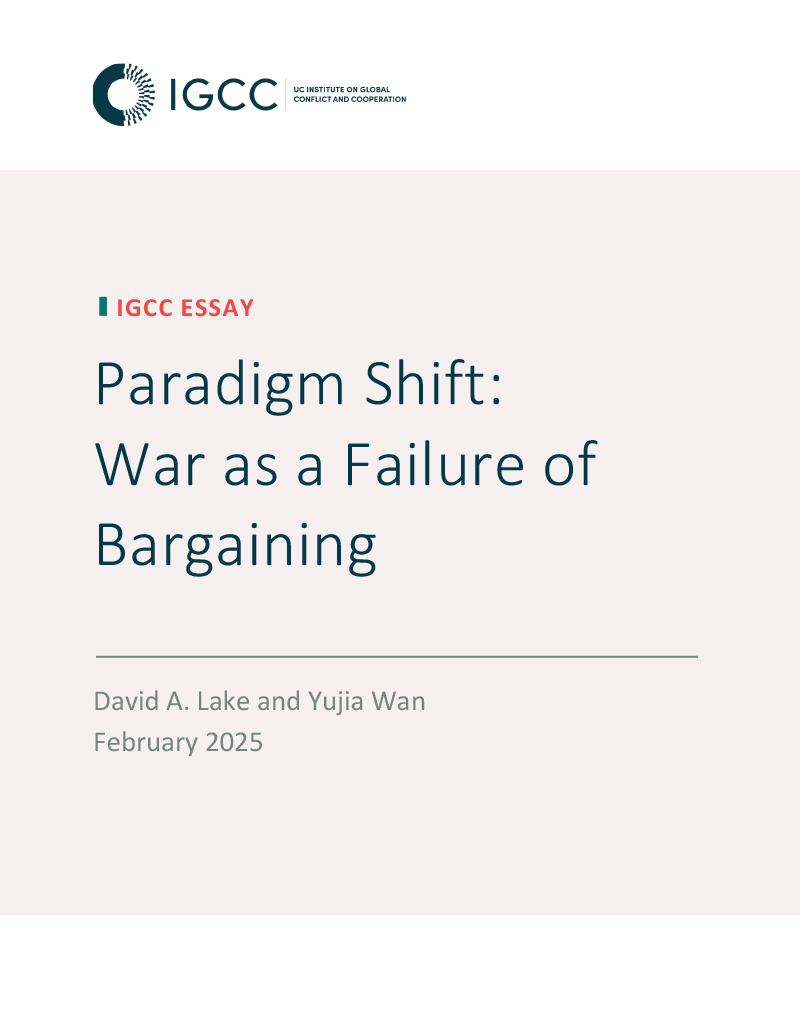Paradigm Shift: War as a Failure of Bargaining

In this essay, David A. Lake and Yujia Wan detail a paradigm shift in the academic theory of war, from an intuitive model in which states seek “victory” to a new understanding of war as a failure of bargaining. The authors consider how impediments to negotiations lead people and states to resort to violence and what this new framework might mean for ending and preventing wars.
DownloadThere has been a paradigm shift in our theory of war. From an intuitive model in which states seek “victory,” war is now understood as a failure of bargaining, an event in which everyone loses relative to agreements that might have been reached without fighting. This new paradigm began to crystalize in the mid-1990s but has become clear only in retrospect. In the midst of such shifts, it is often difficult to see a new paradigm emerging. Some scholars adhere to the older theory, while others jump to the new model even before its fully worked out. It is now fair to say that a paradigm shift has indeed occurred, confirmed as expected by the new model displacing the old one in widely used textbooks in the field.
Given this new way of thinking about war, how can war be avoided? In this essay, co-authors David Lake and Yujia Wan show how the new paradigm of war posits an ideal bargaining domain in which negotiations are efficient and war does not occur. They then ask what are the impediments to negotiation that sometimes lead people and states to resort to organized violence.
David A. Lake is a distinguished professor of the graduate division at UC San Diego. Dr. Lake is a senior fellow at IGCC and served as IGCC research director from 1992–96 and 2000–01. Yujia Wan is a political science PhD candidate with a minor in computational social science at UC San Diego.
Thumbnail credit: Rawpixel